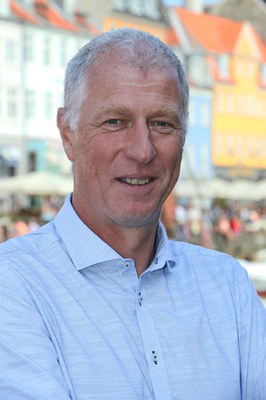One cannot help drawing parallels between the pandemic, the climate crisis and the biodiversity crisis. Scientists had warned us about a pandemic — there were rather accurate scenarios — but nobody knew exactly how it would unfold.
We cannot paint an exact picture of a world that is two or four degrees warmer. We do not know exactly what the tipping points will be for entire ecosystems. What we do know is that, unless we take decisive action and aim for systemic transitions, the outlook is not positive and time is running out. A pandemic can, we hope, be controlled in a relatively short period of time. It might prove to be much more difficult to reverse any damage caused by reaching a tipping point in climate change or in the degradation of nature.
The links between these fast- and slow‑moving crises and pollution are clear. Cutting air pollution and reducing greenhouse gas emissions almost always go hand in hand. Curbing water and soil pollution would benefit nature. Reducing resource use and moving to a circular economy would also reduce pollution.
Many health authorities have warned that citizens with certain pre-existing conditions may be more vulnerable to COVID-19. These pre-existing conditions include respiratory illnesses, which are, in some cases, a consequence of, or exacerbated by, poor air quality.
As a result of the harsh lockdown measures, the concentrations of some key air pollutants dropped dramatically in many European cities. These shocks were not wanted — they are not a model for a well-managed transition — but they showed that air quality in cities can be improved dramatically by reducing car traffic and changing our current mobility patterns.
Human beings and the institutions we have built are wired to deal efficiently with clear and present danger. Unclear, invisible or slow-moving catastrophes are harder for us to comprehend and tackle. Pollution is one such challenge.
In most places in Europe, air does not look, feel, smell or taste dirty. Yet, every year, poor air quality causes the premature death of nearly half a million Europeans. Tap water in Europe is generally safe to drink. We can enjoy fishing and swimming in many of our rivers, lakes and coastal areas. Yet, many of Europe’s water bodies are not in good condition. Europe’s soils still suffer from pollution that was released decades or centuries ago.
The problems are clear but we should also remember that actions and policies to tackle pollution have made a difference. The number of Europeans dying prematurely as a result of poor air quality is less than half of early 1990s levels. Europe’s industry is becoming cleaner, with fewer emissions to air and water. Advanced waste water treatment covers more and more communities. Our agricultural practices are slowly evolving.
Yet, we can and should do much more. This will require the better implementation of existing policies and also ambitious targets that show a path towards climate neutrality, zero pollution, circular economy, healthy nature, and social justice in this fundamental sustainability transition.
Ursula von der Leyen, President of the European Commission, has set an ambitious agenda for her team’s political priorities for the next 5 years. The European Green Deal and its zero pollution ambition outline actions that reflect European citizens’ demand for addressing the climate and biodiversity crises, while ensuring a just transition where people are not left behind. This is an agenda that could have a lasting legacy in Europe.
The European Environment Agency’s (EEA) work has shown that our unsustainable systems of production and consumption — especially those related to food, mobility and energy — are at the core of our sustainability challenges, including pollution. These systems are deeply integrated into our way of life and cannot be changed overnight but we must move in the right direction and our ambition needs to match our capabilities.
For the first time in modern history, we have the means to aspire to generating heat and electricity, moving around and growing food without harmful pollution. We no longer need to accept pollution that affects people and the environment as an inevitable side product of progress.
Europe has shown that we can make progress with strong and binding legislation. When harmful technologies are banned, we find better ways of doing things. Increasing knowledge and putting a steep enough price tag on pollution has proven to work. There are many policy instruments to choose from and, as long as the ambition is right, people will find ways to move in the right direction.
The EEA has a lot of knowledge and expertise to offer on pollution and other environmental challenges as well as solutions for them. EEA Signals 2020 provides a glimpse of the issues we seek to address.
‘Never again...’ is a phrase that human kind has had to say to itself too often. Yet, this conviction of not repeating past mistakes and not allowing the same tragedies to unfold has also led to movements and institutions, including the European Union, that have protected individuals and made our societies stronger.
The ‘Next Generation EU’ recovery package aims to repair the economic and social damage brought by the coronavirus pandemic. The package is about next generations, our future, and about reinventing our economy and society in a way that respects the limits of our planet and ensures people’s long-term well-being.
Despite progress over past decades, the EEA’s landmark assessment ‘The European environment — state and outlook 2020’ clearly showed that Europe now faces environmental challenges of unprecedented scale and urgency. We must take urgent action over the next 10 years to protect the environment, the climate and people.

Hans Bruyninckx
EEA Executive Director

Document Actions
Share with others